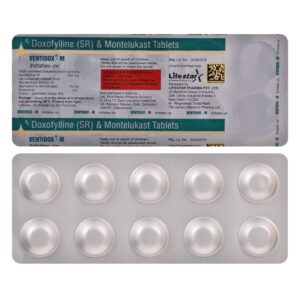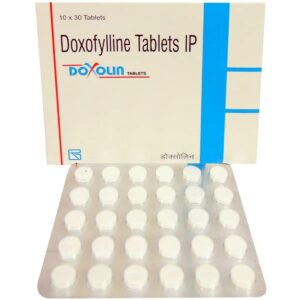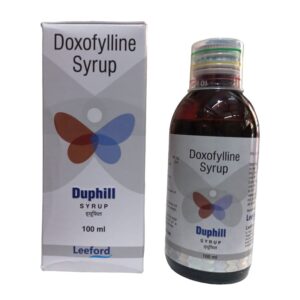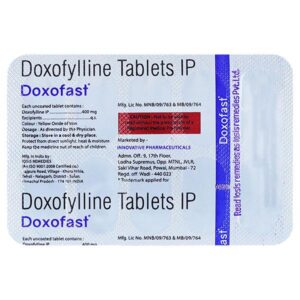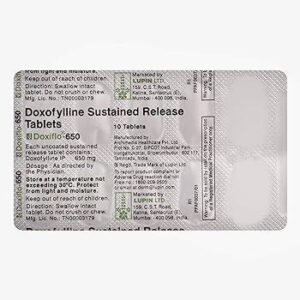DOXOPHYLLINE
DOXOPHYLLINE: Doxophylline is a bronchodilator medication used primarily for the treatment of asthma and chronic obstructive pulmonary disease (COPD). It belongs to the class of drugs known as xanthine derivatives.
The exact mechanism of action of doxophylline is not fully understood. However, it is known to have a dual action as a bronchodilator and an anti-inflammatory agent. It works by relaxing the smooth muscles of the bronchi, which helps to widen the airways and improve breathing. Additionally, it helps reduce inflammation in the airways, which can contribute to the symptoms of asthma and COPD.
Doxophylline is typically taken orally in the form of tablets or extended-release capsules. The recommended dosage varies depending on the severity of the condition and individual patient factors. It is usually started at a low dose and then adjusted as needed. It is important to follow the dosage instructions provided by the prescribing physician.
Some common side effects of doxophylline include nausea, vomiting, stomach upset, headache, dizziness, and palpitations. These side effects are usually mild and temporary. However, if any of these side effects persist or worsen, it is important to seek medical attention. In rare cases, more serious side effects such as allergic reactions, irregular heartbeat, or seizure may occur. If any of these severe side effects are experienced, immediate medical attention should be sought.
In some individuals, doxophylline may interact with other medications, such as certain antibiotics, antifungals, or heart medications. It is important to inform the healthcare provider about all the medications being taken to avoid potential interactions.
Overall, doxophylline is a bronchodilator medication used to improve breathing in individuals with asthma and COPD. It works by relaxing the bronchial muscles and reducing inflammation in the airways. As with any medication, it is important to follow the recommended dosage and be aware of potential side effects.

